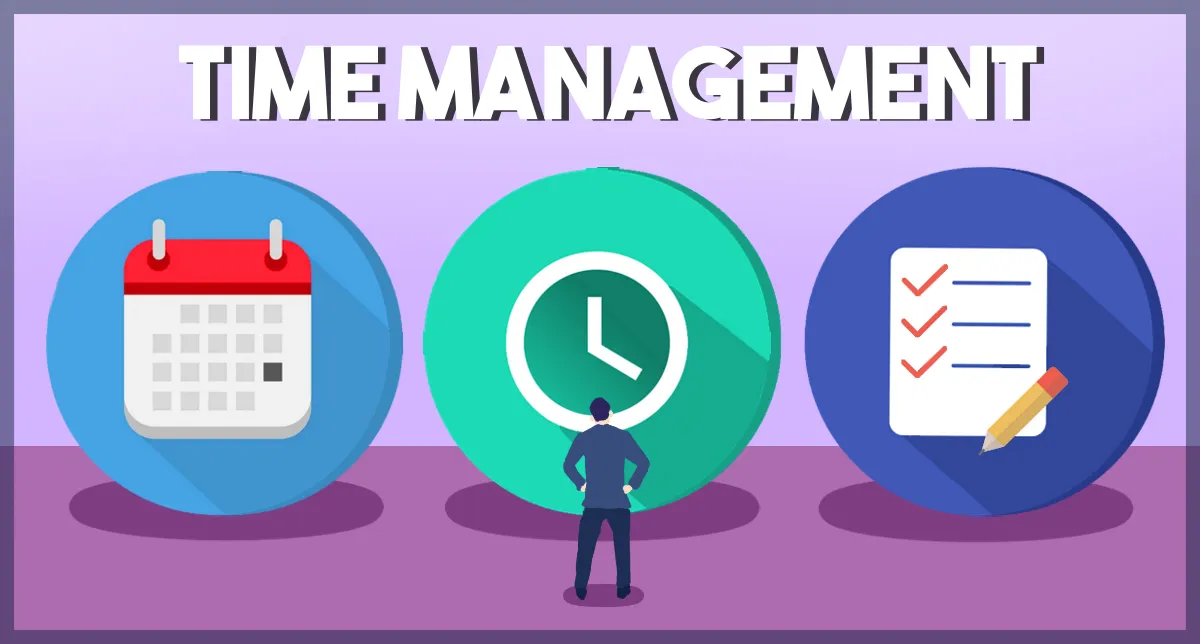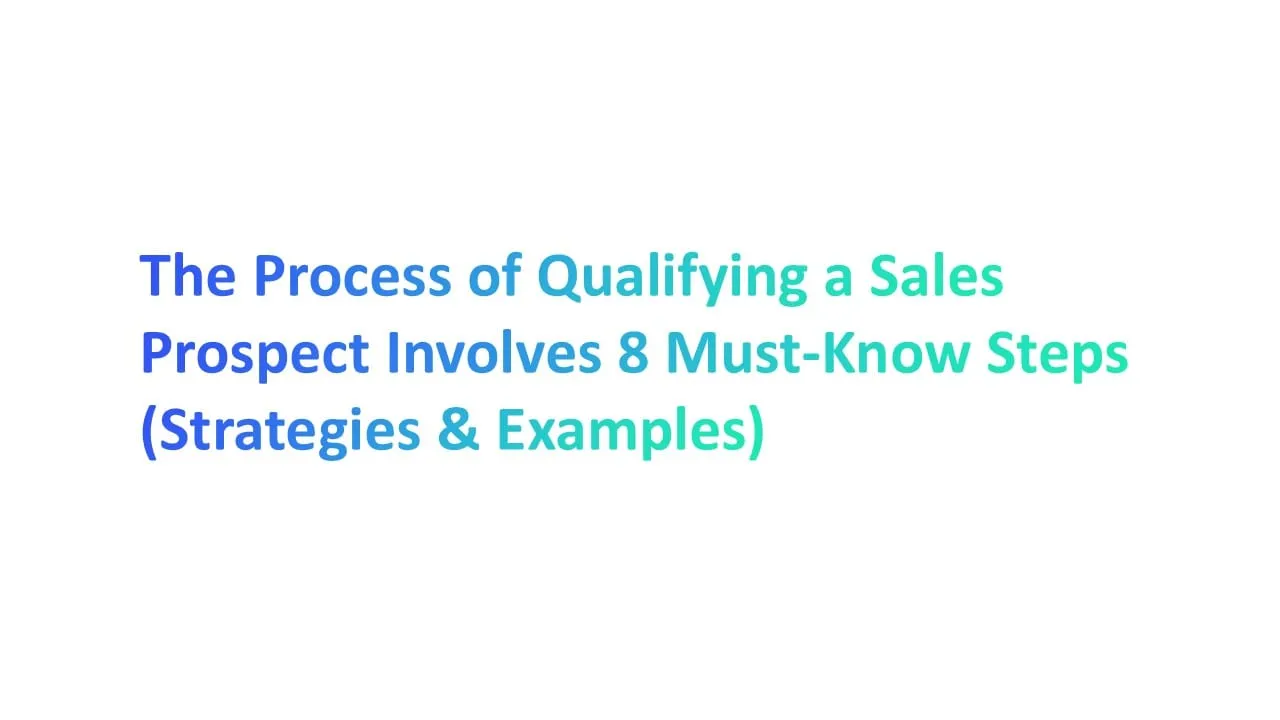Sales reps spend only 34% of their time actually selling, according to a report by Salesforce. The rest? Admin tasks, meetings, and non-selling activities.
Mastering some time management hacks can help you work smarter, not harder. Therefore, learning these time management tips in sales is your key to closing deals faster and hitting your targets consistently.
What is Sales Time Management?

Sales time management is about using your time wisely to achieve better sales results. It helps sales professionals focus on the right activities to close more deals faster.
Sales reps often spend time on various tasks like cold calls, meetings, and customer relationship management (CRM) tool. By managing your time well, you can improve your sales process and hit your sales targets effectively.
Importance of Time Management Skills in Sales Process
1. Accelerates the Sales Cycle
- Time management skills allow sales reps to move potential customers through the sales funnel faster.
- By focusing on higher-priority tasks and reducing time spent on non-sales activities, sales professionals can close deals quicker.
2. Improves Responsiveness to Customer Needs
- Customers love quick responses. When you manage your time well, you can follow up with leads or answer customer questions swiftly. Imagine losing a deal just because you took too long to respond!
- Good time management ensures you’re ready to meet customer needs without wasting time.
- The better you manage your time, the more money you can make by closing deals faster.
3. Enables Strategic Prospecting and Follow-Ups
- Prospecting calls and follow-ups are crucial for closing deals.
- Scheduling your day and setting specific time blocks for these activities ensures that you are always reaching out to potential customers.
- This structured approach helps you find more deals and develop long-term relationships. Sales reps often follow a repeated basis of activities, such as follow-ups and updating records, making automation key.
4. Reduces Stress and Prevents Burnout
- Being a sales rep is hard work. You juggle many sales activities each day.
- Without proper time management strategies, things can become overwhelming.
- Having a daily routine and using tools like CRM software to automate repetitive tasks can save time and make your workload easier to handle.
- Maximize productivity by focusing on key sales activities that drive results.
5. Enhances Customer Relationship Management Efficiency
- Time management in sales means being more efficient with CRM tools.
- Managing customer information and follow-ups becomes easier when you allocate time wisely.
- When administrative work like updating customer information is handled smoothly, you have more time to focus on closing deals and growing customer relationships.
Best Strategies for Sales Professionals

1. Prioritize High-Impact Activities
Not all tasks are equally important. High-impact activities are the ones that move you closer to closing deals—like making prospecting calls, following up with potential customers, or meeting sales targets. Prioritizing these activities means focusing on what truly drives sales results.
Why It's Important:
Sales professionals often get caught up in administrative tasks or lower-priority work that doesn't lead directly to closing deals. That means there's a lot of wasted time being spent on less critical work.
Sales reps handle many different tasks, from making calls to updating customer records. By focusing on high-impact sales activities, you improve your sales performance and save time.
How to Implement:
- Start by making a "to-do" list every day.
- Determine the key tasks that will drive you towards reaching your sales objectives.
- Rank them by priority and tackle the most important ones first.
Think about it this way: spend time on tasks that will up sales efficiency and bring you more deals. The higher the impact, the closer you are to closing deals and hitting your sales targets.
2. Time-Block for Sales Activities
Time-blocking is the process of scheduling specific blocks of time for certain tasks. For example, you might block out the first two hours of your day just for follow-up calls or prospecting.
Why It's Important:
Time-blocking helps sales reps stay focused on the task at hand. It makes it easier to avoid distractions and ensures you allocate time for all necessary activities—like cold calls, CRM updates, and meeting potential customers.
It's a great way to ensure that time management skills are being put into practice daily.
How to Implement:
- Review your sales process and break down tasks: follow-ups, prospecting calls, administrative work.
- Create blocks in your calendar for each type of activity.
- Stick to these blocks as if they're important meetings. For instance, block 30 minutes after each sales call to update your CRM software or CRM tools, so you stay organized.
A daily routine that includes time-blocking makes sure that every important task is given the time it needs. Cold calling is an essential sales activity that, when scheduled properly, can significantly improve sales results.
3. Automate Repetitive Administrative Tasks
Sales reps often spend a lot of time on tasks like data entry, follow-up emails, and updating customer information. Automating these can save sales teams valuable time.
Why It's Important:
Repeating tasks like scheduling meetings or writing follow-up emails eats into your selling time. The more time you spend on administrative work, the less time you have for direct sales activities. Automating repetitive tasks helps you work more efficiently and increases your overall productivity.
How to Implement:
- Use CRM software that can automatically track interactions, log activities, and remind you to follow up.
- Leverage email templates for follow-ups, so you don't have to write new messages each time.
- Schedule meetings using an online calendar tool that lets potential customers pick a time slot without back-and-forth emails.
- Lost time on non-sales activities can be reduced by automating repetitive administrative tasks.
Automation is like having an assistant that handles the small stuff, allowing you to focus on what truly matters: closing deals faster and more effectively. Many sales reps deal with repeatable tasks, like updating CRM records or following up on the same types of leads.
4. Set Daily and Weekly Sales Goals
Setting clear sales targets every day and week helps sales reps stay focused on the most critical tasks. Daily goals might include making a certain number of cold calls, while weekly goals can involve scheduling follow-ups or closing a set number of deals.
Why It’s Important:
Goals give you direction. When you know what you need to achieve each day, it’s easier to stay on track and avoid wasting time. It helps prioritize your sales activities and keeps you motivated.
How to Implement:
- At the start of each week, write down your sales targets. Think about what you want to accomplish by Friday.
- Break down those weekly goals into daily ones. For example, if your weekly goal is to schedule five meetings, aim to schedule one meeting per day.
- Use a “to-do” list to keep track. Once you complete a task, cross it off. It’s motivating and helps you stay on top of your targets.
5. Leverage the Power of a Sales Playbook
A sales playbook is a guide that outlines the best sales techniques, how sales scripts used, and strategies for sales reps. It helps you know what to say during cold calls, how to respond to common objections, and how to follow up with potential customers effectively.
Why It’s Important:
A sales playbook saves time and makes selling more efficient. When you don’t have to think on your feet for every sales situation, you can respond faster and be more confident. Plus, many top sales managers and reps use playbooks as a "cheat sheet" to close deals more quickly.
How to Implement:
- Create a document that includes tips, scripts, and responses for different scenarios. Add information on how to handle objections or what to say in follow-up emails.
- Make sure it’s easily accessible. It could be a physical book, a digital file, or part of your CRM software.
- Practice using the playbook regularly. Make it a part of your sales training and daily routine. The more you use it, the more effective you’ll become in managing your sales activities.
6. Review and Refine Your Schedule Weekly
Reviewing your schedule every week helps you see how well you’re managing your time. Are you spending too much time on administrative tasks? Are follow-up calls being prioritized properly? Taking time to reflect on your week helps you identify where to make adjustments.
Why It’s Important:
Sales professionals often juggle many tasks—prospecting calls, customer relationship management, follow-ups, and more.
If you don't review how you spend time, you could be missing opportunities to improve your sales performance. A weekly review allows you to refine your schedule, focus on what's working, and eliminate what's not.
How to Implement:
- At the end of each week, take 15-30 minutes to review your calendar. What tasks took longer than expected? Did you spend too much time on non-selling activities?
- Adjust your schedule based on what you learn. If some sales activities are taking up too much time, try to find ways to automate or delegate them.
- Allocate time for higher-priority tasks next week, like follow-ups, customer calls, or sales pipeline updates.
Takeaway: By setting daily and weekly goals, using a top sales strategy and playbook, and reviewing your schedule weekly, you can enhance your time management in sales. This not only improves your productivity but also helps you save valuable time and achieve sales success.
7. Practice the “Two-Minute Rule”
The Two-Minute Rule is a simple technique to help you decide if a task is worth doing right away. If something takes two minutes or less to complete, do it now. It could be writing a quick follow-up email, scheduling meetings, or updating customer information.
Why It’s Important:
Sales reps often face many small tasks, such as responding to follow-ups or checking customer details. These administrative tasks can add up and eat into your selling time.
By quickly tackling small tasks, you can save valuable time and focus more on closing deals and prospecting calls. It also helps avoid piling up tasks on your to-do list.
How to Implement:
- When a task comes up, ask yourself: “Will this take less than two minutes?”
- If yes, handle it right away. Don't let it linger.
- If the task takes longer, schedule it for later. This method ensures that you spend your time wisely and stay focused on sales activities.
8. Group Similar Tasks Together (Task Batching)
Task batching is all about grouping similar tasks and doing them all at once. Instead of spreading out your follow-ups, prospecting calls, or CRM software updates throughout the day, schedule specific times to complete them all at once. This way, you stay in the zone and complete tasks faster.
Why It’s Important:
Jumping between different activities can waste time and make it hard to stay focused. By batching similar tasks, you reduce "task-switching," which can slow down your sales process.
For instance, many sales reps find it more efficient to set aside one hour just for cold calls or writing follow-up emails, rather than doing them randomly throughout the day.
How to Implement:
- Review your daily routine and identify tasks that are similar.
- Create blocks of time for each type of task. For example, you might block 30 minutes each morning for follow-ups or an hour in the afternoon for cold calls.
- Stick to these time blocks. Avoid doing anything else during this time.
Grouping similar tasks helps sales professionals stay efficient and make the most of their most valuable resource time.
9. Adopt a Digital “No-Meeting Day”
A “No-Meeting Day” is a day you set aside each week to avoid meetings and focus entirely on sales activities. On this day, you won't schedule any face-to-face meetings, team discussions, or long calls that aren’t urgent.
Why It’s Important:
Meetings can be time-consuming, and they often interrupt your workflow. Dedicating one full day to tasks like prospecting, follow-ups, and customer relationship management (CRM) helps you stay in "deep work" mode without distractions.
This allows you to complete important tasks and spend time on activities that directly impact sales results.
How to Implement:
- Choose one day of the week as your “No-Meeting Day.” It could be mid-week or a day when you typically have fewer scheduled meetings.
- Let your team and potential customers know that you won't be available for meetings on that day, but are happy to connect at another time.
- Use this uninterrupted time for activities like updating your sales pipeline, planning your sales strategies, and focusing on closing more deals.
10. Use a “Power Hour” for Prospecting
A "Power Hour" is a focused, distraction-free hour that you dedicate entirely to prospecting calls and reaching out to potential customers. During this time, you and sales team can make phone calls, send follow-up emails, or reach out to new leads.
Why It’s Important:
Prospecting is a key sales activity, but it’s easy to get distracted by other administrative tasks. Dedicating a full hour to just prospecting allows you to stay focused and achieve more in less time. This strategy helps you close more deals and keeps your sales pipeline full.
How to Implement:
- Set a specific hour every day or week. Let your team know it's your Power Hour.
- Avoid distractions—turn off notifications, close tabs, and keep your phone on silent.
- Have a clear goal. For example, aim to make 10 calls or reach out to 20 potential customers.
Making the most of this Power Hour can save time in your day and help you hit your sales targets faster.
11. Leverage Sales Dashboards for Quick Data Insights
Sales dashboards are tools that give you a quick view of your sales activities, performance, and customer relationship management (CRM). They display data like the number of sales calls made, deals closed, and how your sales strategies are working.
Why It’s Important:
Dashboards help sales reps see what’s working and what’s not—fast. They allow you to track sales performance without spending hours on spreadsheets.
This means more time selling and less time on administrative work. They can help you spot trends, make adjustments, keep sales pipelines and follow up with leads effectively.
How to Implement:
- Use CRM software that has a sales dashboard feature. It should track important metrics like follow-ups, closed deals, and prospecting calls.
- Set aside a few minutes each day to review your dashboard. Ask yourself: “What do I need to do to improve?”
- Make decisions based on the data. If you see a gap in follow-ups, focus on that. If your cold calls aren’t converting, tweak your approach.
Dashboards give you a quick overview of your sales process, allowing you to spend more time on what matters: closing deals and improving sales success.
12. Embrace the Power of “Micro Breaks” to Stay Sharp
Micro breaks are short breaks that you take throughout the day—lasting around 5 to 10 minutes. It can be as simple as stretching, taking a quick walk, or even stepping outside for fresh air.
Why It’s Important:
Sales professionals often have busy schedules packed with calls, meetings, and other sales activities. Without breaks, it’s easy to burn out or lose focus.
Micro breaks help you stay sharp, stay focused, and maintain your energy throughout the day. Research shows that taking short breaks can improve concentration and productivity.
How to Implement:
- Schedule a micro break every hour. Use an alarm or timer to remind you.
- During the break, avoid work-related activities. Do something relaxing: grab a coffee, listen to music, or take a quick walk.
- Keep the break short (5-10 minutes), so you can get back to your tasks refreshed.
By taking these short breaks, you’ll find that your work becomes more efficient, your mood improves, and you’ll be ready to tackle even more sales tasks. Building good time management habits early on can lead to long-term success in your sales career.
Conclusion
Mastering time management in sales is key to success. Focus on the most critical tasks, set goals, and use tools to stay organized. From a sales perspective, managing your time is key to improving efficiency and closing deals.
By managing your time well, you’ll close more deals, build stronger customer relationships, and reach your sales targets faster.









